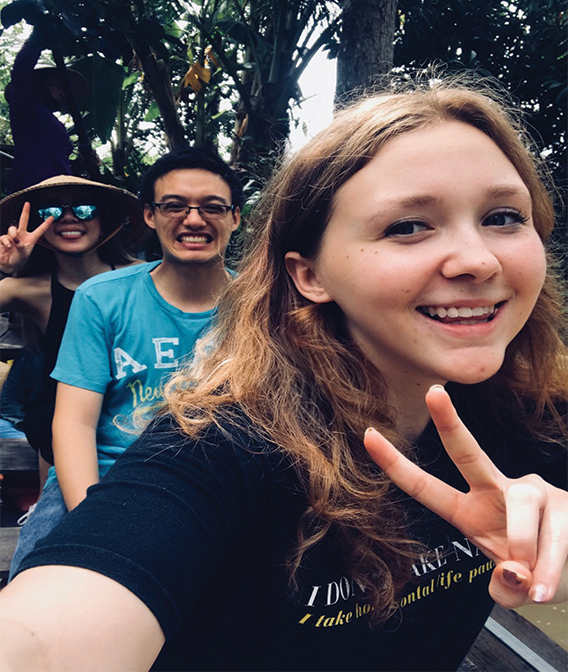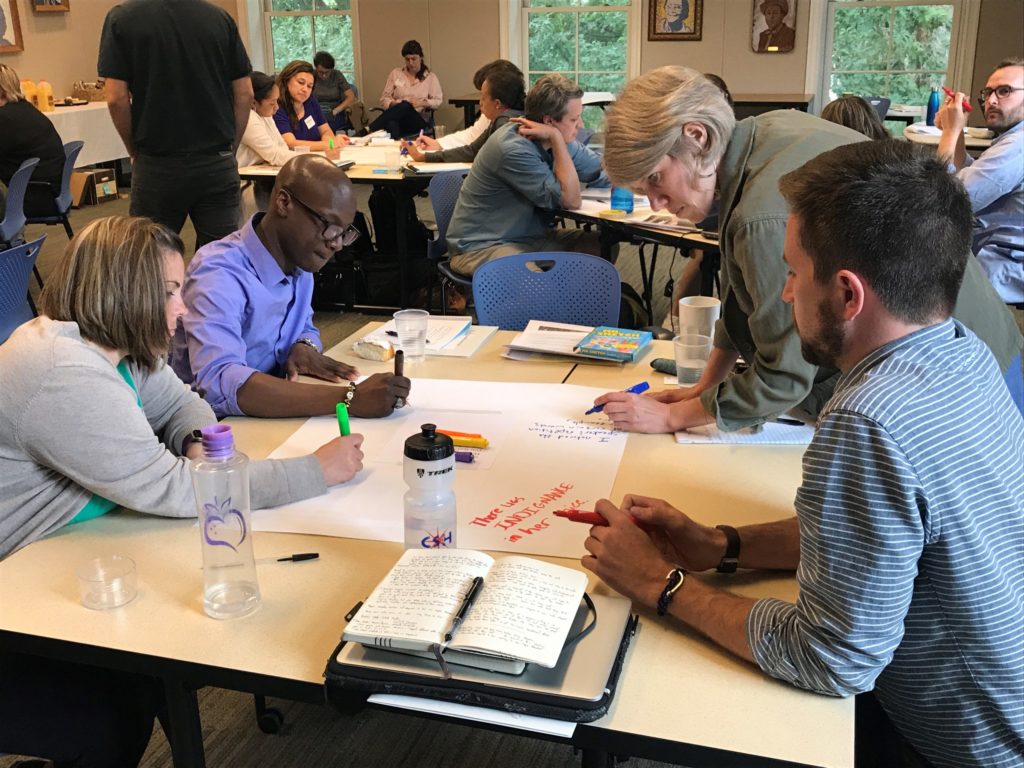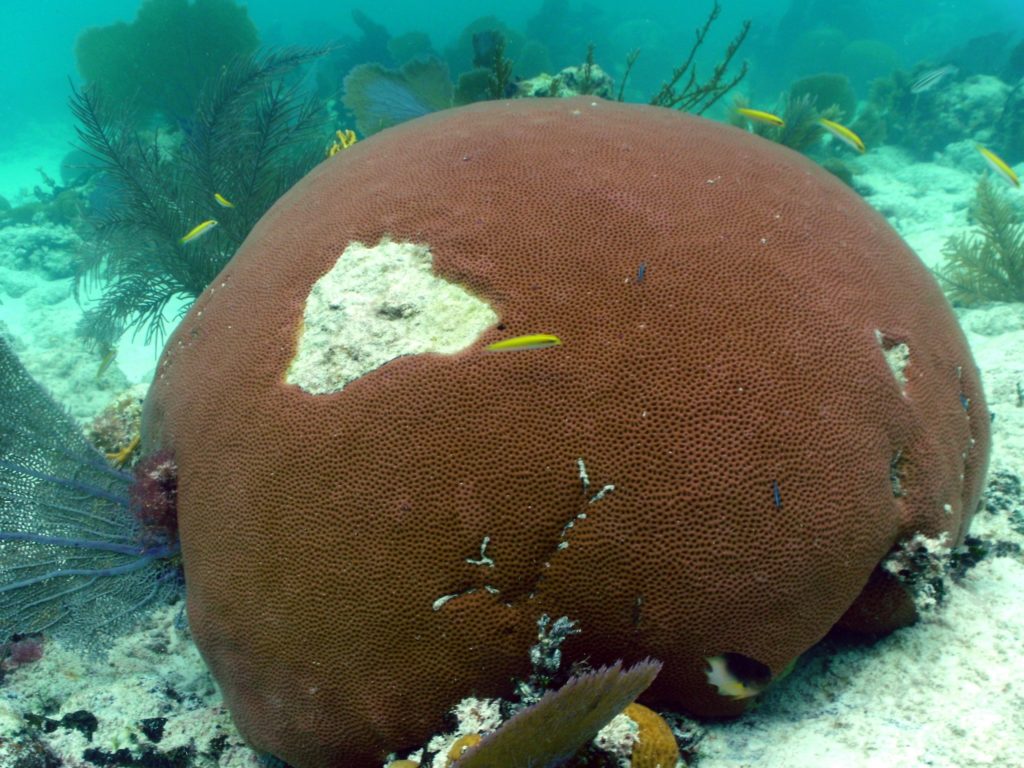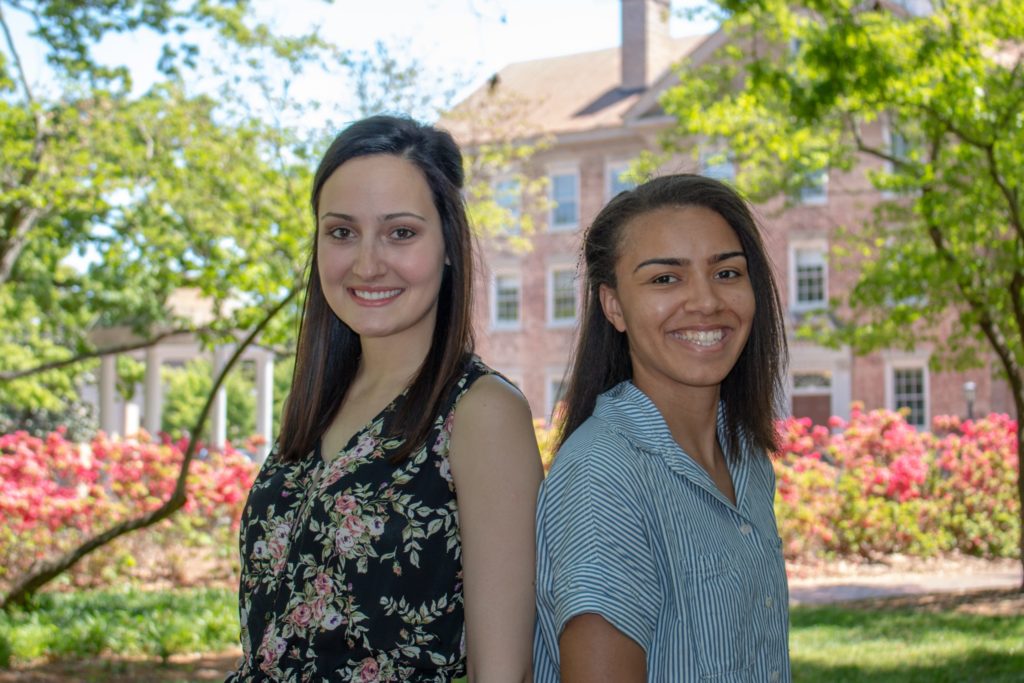
Psychology major Kaylee Miceli is spending her summer in Vietnam interning with students from Tan Tao University to explore how various treatment methods affect depression.
When Kaylee Miceli decided to head up a neuroscience research study in Vietnam, there was only one problem: a plane ticket to Vietnam isn’t cheap.
“I knew what I wanted to do, but there was always a financial barrier,” said Miceli, a rising junior who is a psychology major.
Instead, she hunkered down in the library, trying to decipher Vietnamese research papers on mental health treatment in a part of the world she thought she couldn’t visit.
But with financial support from the Carolina Global Initiative Award, Miceli boarded a plane to Ho Chi Minh City this summer to explore her interest in neuroscience in a way she never thought possible.
An initiative of Carolina’s Center for Global Initiatives, the award provides need-based funding to students with little or no travel experience, allowing them to research, study, work and volunteer across the country and the world.
During her summer in Vietnam’s Long An Province, Miceli is interning with local students from Tan Tao University to conduct interviews with nearly 40 patients at a local hospital, exploring how various treatment methods affect depression — an illness surrounded by intense stigma in Vietnam.
“I’ve always been interested in eastern philosophy and how different perspectives influence the way we approach science,” she said. “Just bringing in all these new perspectives on medicine and religion and philosophy is going to affect the way I look at neuroscience from now on.”
Every four weeks, Miceli measures the effectiveness of depression treatments by surveying patients to evaluate their symptoms, including insomnia and social withdrawal. With the help of her Vietnamese collaborators, she will continue to direct the study once she arrives back in the United States for the fall semester.
The experience has already affirmed Miceli’s future plans to study the human brain.
“I haven’t decided on a specific area in the brain that I want to delve into, but I do want to get my Ph.D. and go into research, so this is a great introduction to that,” she said. “I’m very happy and in awe that I even got the opportunity to do this.”
Miceli is one of 54 students — many of them first-generation college students and first-time international travelers— who have traveled around the world with the Carolina Global Initiative Award over the past six years.
Brandy Arellano, program manager at CGI, said the goal is to make travel accessible to all students, including transfer students, veterans and others who don’t traditionally pursue global experiences during college.
“With a global education comes adaptability, confidence, intercultural skills and this new self-awareness that can really help students excel, not only academically but in their future careers as well,” she said. “It brings a new sense of pride and a new sense of ‘I can do it’ to these students. Having global experiences really influences what our students can contribute to the University, to the state and even to the world.”
Miceli has experienced this growth firsthand. In her two weeks in Vietnam, she has become confident in navigating the city, working with peers and getting to know the locals.
“There’s an indescribable energy here that I’m able to feed off of, which has been great,” Miceli said. “People have been amazingly kind to me and have made my experience and my transition so much easier, especially as a first-time traveler abroad.”
Story by Emilie Poplett, UNC Communications




